يحاول ذهب - حر
The Return Of The Kite
November 27, 2019
|Cage & Aviary Birds
Red is for ‘go’: GRAHAM WELLSTEAD celebrates one of the century’s most successful conservation stories in this country

IS REINTRODUCTION the right word to describe the return of the red kite (Milvus milvus) to our skies, for in practice they had never gone away? A small group had held on by the tips of their talons to the wilder parts of West Wales. Constantly being robbed by egg collectors meant that it was only a question of time before we really had lost them, though, and ever-decreasing gene pools would not have helped.
After the successful reintroduction of the white-tailed eagle in Scotland in the 1970s, feasibility studies suggested the process could be repeated with the red kite. The existing population in Wales was too small to allow large numbers of young birds to be relocated to other areas, so the organisers (an initiative involving the RSPB and what was then English Nature) looked to the continent; in particular, Spain. The first kites – young birds – were brought from the thriving population in Spain in 1989 and this continued until 1994, starting in the Chiltern Hills in Buckinghamshire.
The birds were kept in large aviaries until old enough to fly free and a slow-release system proved effective. The young birds did well, began to spread naturally, and soon became a common sight for drivers on the M40 motorway near High Wycombe. I travelled that road often during the early 1990s and would be disappointed if I did not see three or four of these graceful birds drifting across the carriageways. Not only did they succeed, but they also bred quite quickly; a first breeding was recorded in 1992, much quicker than the Scottish eagles which took 10 years.
هذه القصة من طبعة November 27, 2019 من Cage & Aviary Birds.
اشترك في Magzter GOLD للوصول إلى آلاف القصص المتميزة المنسقة، وأكثر من 9000 مجلة وصحيفة.
هل أنت مشترك بالفعل؟ تسجيل الدخول
المزيد من القصص من Cage & Aviary Birds
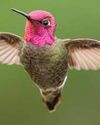
Cage & Aviary Birds
The World's Best-Known Hummingbird?
Intensively studied, the gem-like Anna’s hummingbird is a welcome visitor to the gardens of America’s most populous state: California. Bill Naylor investigates its life history
5 mins
December 18, 2019
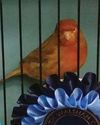
Cage & Aviary Birds
The charm of the English Cinnamon
Despite its long and complicated history, the true Cinnamon canary is still with us – in the hands of a tiny group of breeders. DONALD SKINNER-REID reckons it deserves wider appreciation
4 mins
December 24, 2019
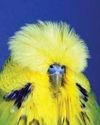
Cage & Aviary Birds
Spangles: a personal overview
FRED WRIGHT relates a budgie story of over-exploitation, consequent problems and abundant potential for the future
4 mins
December 24, 2019

Cage & Aviary Birds
New converts to old breeds
Old and rare canaries have a reputation for adding fresh interest and challenge to the hobby. PETE HOOK and NICK JOY agree, and explain the birds’ charm to Dave Brown
3 mins
December 24, 2019

Cage & Aviary Birds
Themed aviaries are a hit with the public at annual Stafford show
DECORATIVE AVIARY DISPLAYS from a CBS and an online bird keeping advice group were voted in the top three by visitors for the inaugural Stafford Aviary Competition.
1 mins
December 18, 2019
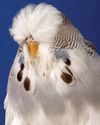
Cage & Aviary Birds
Pieds with potential
More than just a lesser variety, the dominant pied will introduce challenge and change into most studs, reckons CLIVE WAKEMAN. Here he discusses pairings to try and others to avoid
3 mins
December 18, 2019

Cage & Aviary Birds
Club News
Welcome to the club and show pages – the bit that’s all about you Results: convention, specialist & rare and Breeder of the Year
1 min
December 18, 2019
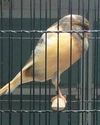
Cage & Aviary Birds
Canaries Month by Month:
With Christmas around the corner, BRIAN KEENAN is well into his winter programme, and reckons he might deserve a nice outcross
4 mins
December 18, 2019
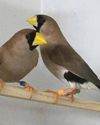
Cage & Aviary Birds
Smart Choice, Docile Nature
Dave Brown welcomes the masked grassfinch to his birdroom and shares advice on this lovely Australian species
3 mins
December 04, 2019
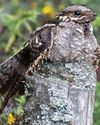
Cage & Aviary Birds
The truth about the ‘flying toad'
Odd local names and weird superstitions can’t hide the beauty and elegance of the nightjar, a species that has made a fascinating subject in a few zoo collections, reveals BILL NAYLOR
5 mins
December 04, 2019
Translate
Change font size
